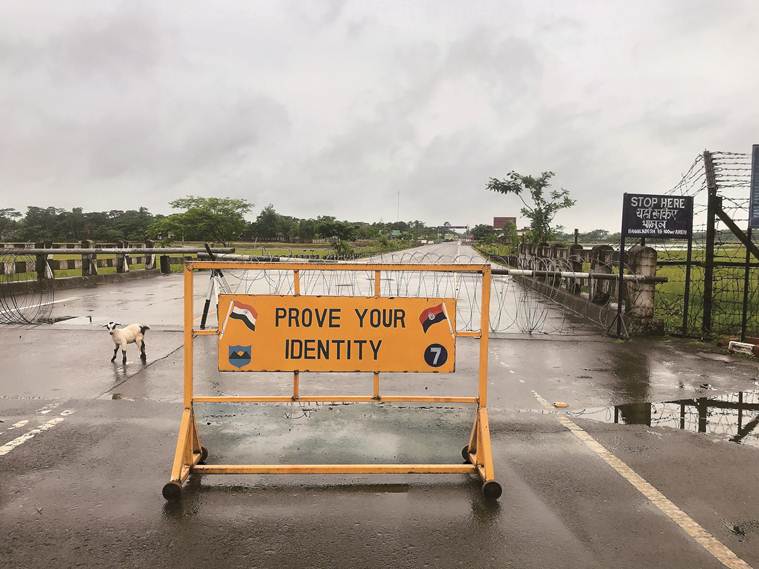Cause and Effect: An interview with poet Shalim Hussain
Assamese author and poet Shalim Hussain on migration, NRC and a wave of Miyah poetry back home.

“The final draft of the NRC has been brought out and claims and objections are being filed. If the news reports are to be believed, the number of objections is very small, when compared to the figure of 40 lakh people who were left out,” says Shalim Hussain.
At a session titled “Madness of Migration” at the recently held Khushwant Singh Literary Fest in Kasauli, poet Shalim Hussain, 31, called migration “as natural a human instinct as progress”. A poet, writer and translator based in Guwahati, Hussain is also at the forefront of the new wave of ‘Miyah movement’ back home, a form of protest poetry by Assamese Muslims of Bengali origin. His new book, which releases next year, is based on a personal journey through the disturbed hinterlands of Assam. Excerpts:
Tell us about your upcoming book.
The book is a travelogue set in villages of Assam where Assamese Muslims of Bengal origin live. It will be out in 2019. It is based on a journey through the disturbed hinterlands of Assam and puts forth a voice to challenge the popular Assamese imagination which looks at the Bengal-origin Muslims with suspicion.
You call the book a personal journey.
My great-grandparents migrated to present day Assam during the British period. My grandparents were born here in pre-Independence India. My generation of Assamese Muslims of Bengal origin was born in the aftermath of the Assam Agitation. We haven’t seen the violence of 1983, but the year has left behind a terrible shadow.
What is the wave of Miyah poetry?
In April 2016, about 20 poets from the state shared their experiences of being ‘Miyah’ on social networking sites, a derogatory term in Assam for Muslims of Bengal origin. These poems deal with poverty, exclusion, violence, government apathy and the ignominy of being called foreigners. They have taken the word ‘Miyah’ with all its negative connotations and tried to give it a new meaning. The Miyah poets follow the ‘Char-Chapori’ poets, writers from the chars (river banks) and chaporis (riverine islands) whose protest poems emerged in the wake of the 1983 Nellie massacre.
How is migration different in the context of Northeast vs the rest of India?
Human beings have always had an urge to improve their current condition and migration has been a means to do so. It is when national boundaries are drawn that migration becomes a problem. In my community, mass migration from what is now Bangladesh to Assam has happened over the last two and a half centuries. It is only after the two Partitions that the Assamese Muslims of Bengal origin were suspected of being illegal Pakistani or Bangladeshi immigrants and xenophobic hatred grew.
How is NRC affecting people back home?
The final draft of the NRC has been brought out and claims and objections are being filed. If the news reports are to be believed, the number of objections is very small, when compared to the figure of 40 lakh people who were left out. Since India doesn’t have an extradition policy with Bangladesh, those people left out cannot be sent to Bangladesh. So the objective of the NRC seems to be the identification of citizens and non-citizens based on documents.
What are some of your other projects?
One is Betelnut City, an anthology of poems set in and around Guwahati. The other is an English translation of Kamal Kumar Tanti’s Post-Colonial Poems. Currently, I am working on two books. One, is a travelogue and the other is an anthology of Miyah poetry which I am editing.






















No hay comentarios:
Publicar un comentario